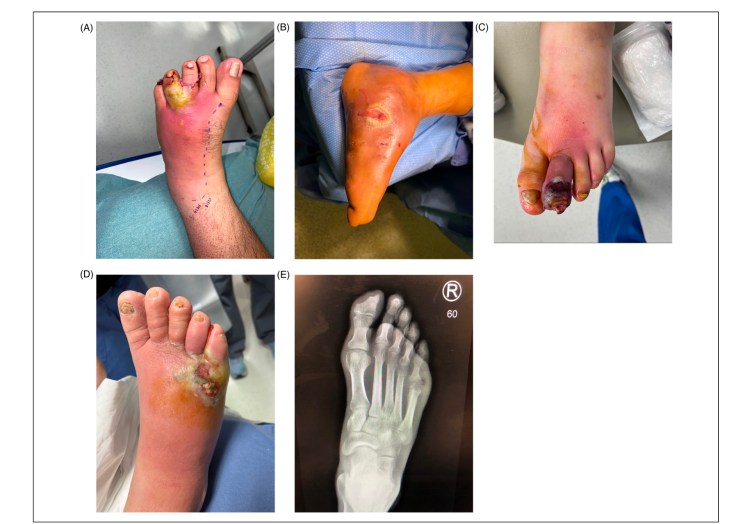Shifting the Paradigm: An In-depth Look at Joseph et al.’s Review on MRSA Treatment in Diabetic Foot Infections

In the pursuit of better patient care, medical practitioners continually seek to refine treatment protocols. A recent review manuscript by seasoned podiatrists and infectious disease specialists, Warren Joseph, Mark Kosinski, and Lee C. Rogers, sheds new light on the management of Methicillin-resistant Staphylococcus aureus (MRSA) in diabetic foot infections (DFIs). This insightful work elucidates the benefits and risks associated with parenteral vancomycin treatment, steering the discussion towards more patient-centric approaches.
The review, titled “Parenteral Vancomycin in the Treatment of MRSA-associated Diabetic Foot Infections: An Unnecessary Risk?”, delves into the crux of MRSA treatment in DFIs. Traditionally, parenteral vancomycin has been the go-to remedy. However, Joseph et al. challenge this norm by exploring alternative, potentially safer, and more cost-effective methods.
Their comprehensive analysis unveils the comparative effectiveness of oral antibiotics such as tedizolid phosphate and linezolid against the intravenous regime. The manuscript draws upon various clinical trials and economic evaluations, significantly, a randomized Phase 3 trial, which showcased the efficacy and safety of tedizolid phosphate over linezolid in treating acute bacterial skin and skin structure infection. The narrative extends to the economic realm, addressing the non-drug costs entailed in intravenous antibiotic therapy and the cost-effectiveness of oral versus intravenous antibiotics in bone and joint infections.
Furthermore, the manuscript takes a microscopic look at the outpatient parenteral antimicrobial therapy (OPAT) and its implications on patient readmission and healthcare costs. The review underscores the risk factors associated with readmissions in patients discharged with OPAT and presents a compelling argument on the overuse of broad-spectrum antibiotics in outpatient settings.
A notable aspect of this review is its emphasis on the importance of antimicrobial stewardship, a conscientious approach towards antibiotic usage to curb resistance and improve patient outcomes. The discussion on transitioning from intravenous to oral therapy in bacteremia patients encapsulates the essence of evolving medical practices in line with emerging evidence and patient-centric care.
Joseph et al.’s manuscript is more than just a scholarly review; it’s a clarion call to rethink existing treatment modalities for MRSA in DFIs. By meticulously evaluating the risks associated with parenteral vancomycin and championing the potential of oral antibiotic regimens, the trio of experts propels the medical community a step closer to optimized, patient-focused care in managing diabetic foot infections. This manuscript not only enriches the discourse around MRSA treatment but also exemplifies the collaborative spirit of medical inquiry that drives better patient outcomes.
As the medical fraternity continues to grapple with antibiotic resistance and strives for enhanced patient care, the insights from Joseph, Kosinski, and Rogers provide a valuable roadmap. Their review manuscript is a testament to the evolving nature of medical science and the relentless quest for better, safer, and more cost-effective treatment protocols.
[Tratto da: www.diabeticfootonline.com ]









